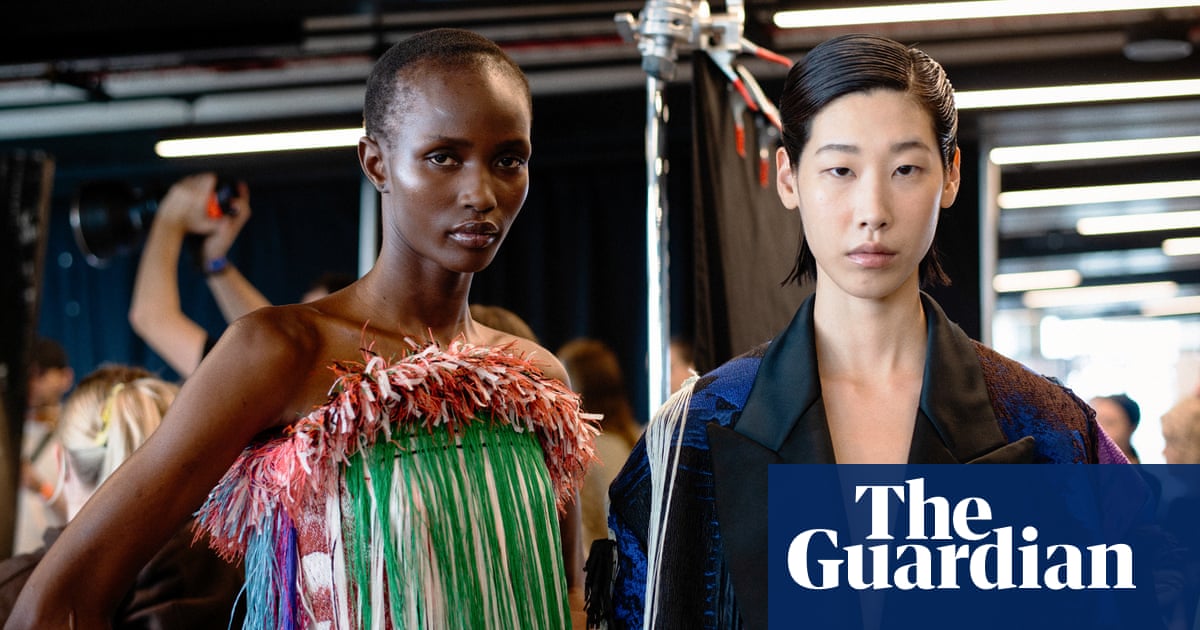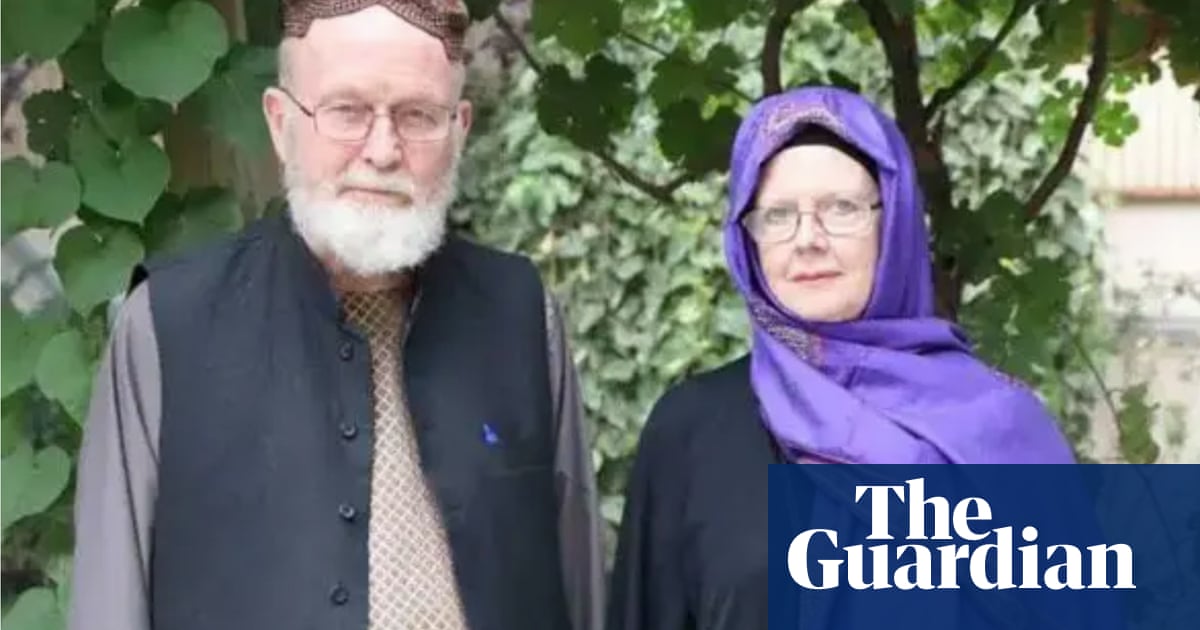Dickie is a drag queen – but not a very good one. For a start, he finds it impossible to get his eyebrows right: they’re usually scrawled haphazardly across the upper reaches of his forehead. And while his every utterance comes suffused with bitchy energy, he flounders during any actual war-of-wits. What Dickie does have, however, is a ridiculously inflated sense of self-worth: in the grand tradition of sitcom monsters, his three defining personality traits are vanity, delusion and a spectacular dearth of talent. When his boyfriend decides he’s had enough of this “selfish, egotistical prick”, Dickie’s impulse is to soften his heart with a repulsively flat rendition of Make You Feel My Love, which is cut short when he is hit by a car. Needless to say, he doesn’t get his man back.
Dickie would probably like to think he is the star of Smoggie Queens – the brainchild of comedian Phil Dunning, who plays him – but he’s not; this Middlesbrough-set sitcom (Smoggie is a nickname for someone from the area) is very much an ensemble piece. In fact, that’s the whole point: the show’s primary theme is “chosen family” – a group of friends that are a staple of LGBTQ+ communities. Dickie’s clan includes kindly middle-aged drag queen Mam (played by a masterfully disguised Mark Benton; I gasped when I saw his name on the credits), stony-faced wannabe singer Sal, token heterosexual Lucinda and naive newbie Stewart, whose youth is taken as an act of outright hostility by the ageing Dickie.
As a premise, it’s a timely and novel one, and Smoggie Queens does a great job of capturing British camp sensibility: the cheerfully shonky glam, the deadpan humour, the cosy obscenity, the hearty embrace of all things tacky, unpretentious and mainstream. After that car accident, Dickie – clad in black veil and dramatically running mascara – stages a wake for his relationship. Later, we’re treated to a mesmeric dance-off to B*Witched’s C’est la Vie at a Titanic-themed drag brunch. One of the show’s major delights is its gleeful celebration of the UK’s low-brow pop culture canon, from Lorraine Kelly to Girls Aloud to Stewart’s scandalous revelation that he is unfamiliar with daytime TV mainstay Bargain Hunt.
But Bargain Hunt references alone cannot buoy a sitcom for six episodes. I was very much looking forward to Smoggie Queens; Dunning’s silly, mildly chaotic character comedy (often delivered in drag) has been an uproarious fixture of London’s alternative scene for a few years now; he is one of the closest things we have to the satirists of extremely online millennial life who operate across the pond (see: John Early, Kate Berlant, Tim Robinson). Yet Smoggie Queens’ use of Dunning’s trademark humour feels strangely half-hearted.
I’m not sure how much compromise was involved in its creation, but something about the comic tone doesn’t quite stack up. The cartoonishly vile Dickie – whose every remark tends to be delivered in the same monotone, vocal-fried drawl – might have worked as a dark, uncompromising Julia Davis-style grotesque, yet here he is surrounded by soppiness and schmaltz. That part makes sense, because the series is all about a tight-knit queer community who look after each other: Dickie aside, Smoggie Queens radiates earnest loveliness, and the humour is safe and fairly obvious. Yet while it is often very heartwarming, the show doesn’t really work as a big, lovable Gavin and Stacey-esque sitcom either. I’m putting this down to a distinct lack of actual jokes. I appreciate an experimental yet broadly unfunny comedy as much as the next TV critic, but Smoggie Queens does not belong to this modern genre: it is a conventional sitcom that is simply too light on big-swing gags. (That said, there is a genuinely disturbing storyline involving Sal’s abusive, toxic girlfriend, played by Peaky Blinders’ Charlotte Riley.)
The sitcom is an endangered species; Ofcom has classed scripted comedy as an “at risk” genre six years in a row. This means that finding fault with that rarest of beasts – a brand-new sitcom from a new (to TV) talent – feels tantamount to shooting a Siberian tiger at point blank range. But comedy is itself merciless as a category: if it’s not funny enough, it hasn’t done its job. Smoggie Queens is very sweet and the world it builds will delight many, but it lacks the punchlines of a properly mainstream crowd-pleaser or the transgressive shock value of a cult hit. It is marooned somewhere in the middle, a place of impressive flamboyance, but too few actual laughs.

 2 months ago
46
2 months ago
46













































